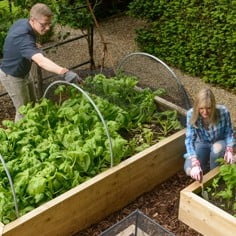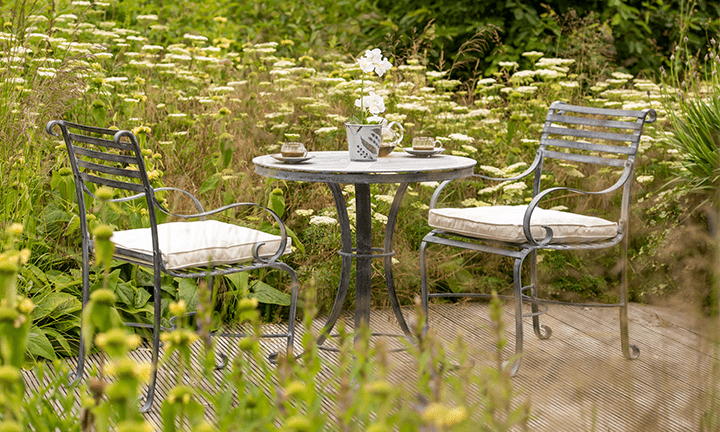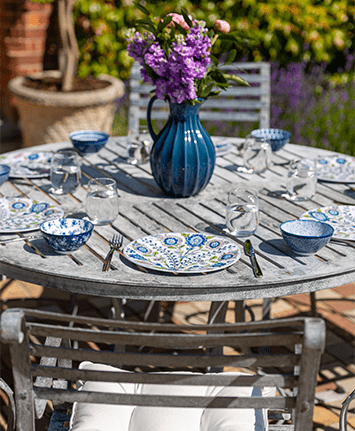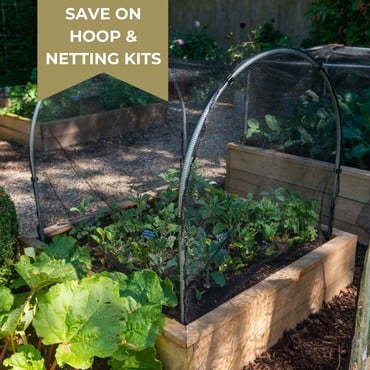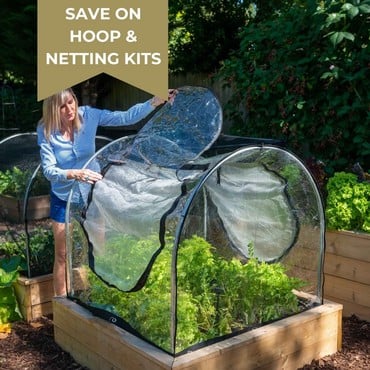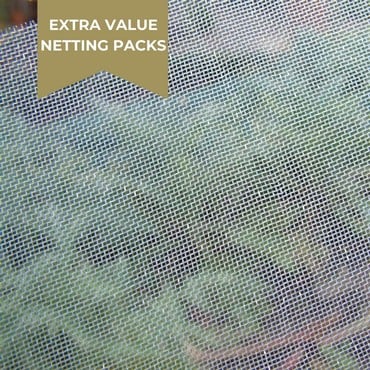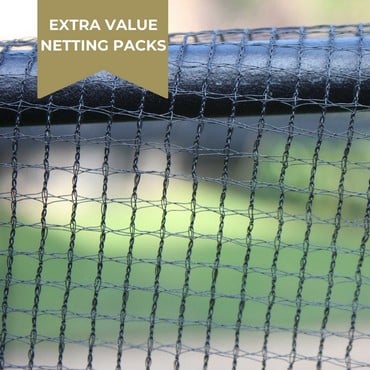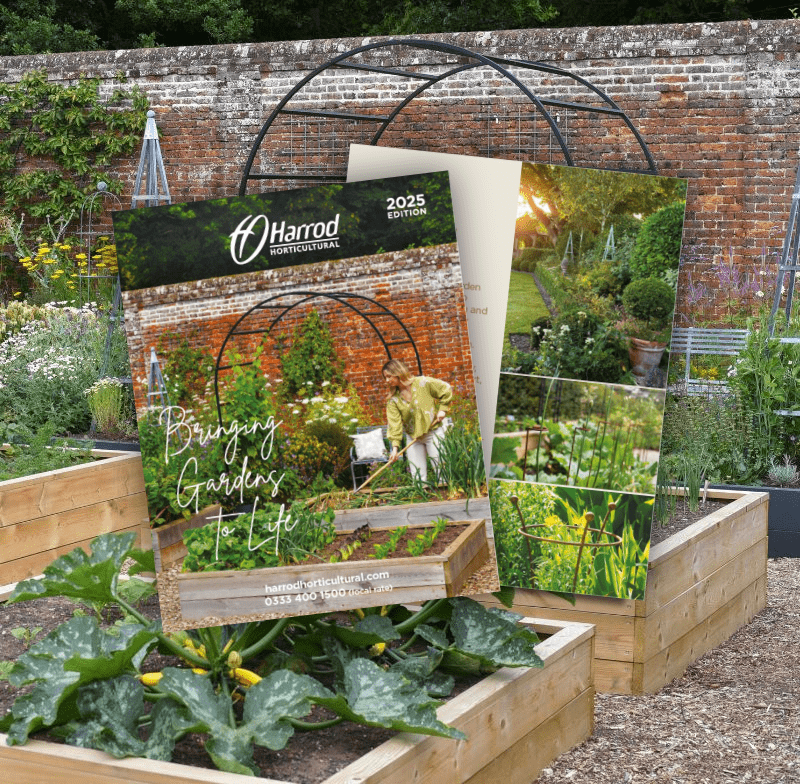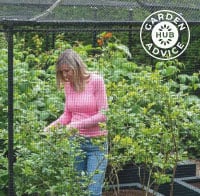Protecting Plants
Successfully protecting your plants from pests and the weather is very important and helps you make the most of your crops, after all, less damage to your plants will mean bigger harvests.
Below are a few simple tips to help you protect your plants against the weather and pests, for more detailed information see Crop Protection and Diseases & Pests in the Growing Advice section.
Protecting against the Weather
Cold weather, especially frosts, can cause severe damage to even hardy plants over a prolonged period, so when planning your garden it is a good idea to identify any potential frost pockets and only use hardy plants in those areas.
There is a however a variety of coverings to help gardeners protect their plants from adverse weather:
- Fleece - ideal for protecting your plants during cold weather.
- Windbreak & Shade Netting - can stop damaging gusts, or intense sunlight damaging plants.
- Polythene Sheet - this offers great protection and can also make the most of spring sunshine to warm the soil for earlier planting.
- Insect Mesh - although primarily designed to stop insects, this netting does provide protection against heavy rain, hail, wind and offers 20% shade.
For a more permanent growing area which offers protection from the weather a greenhouse or cold frame is a very worth while investment. It really does open up a raft of gardening opportunities; you'll create a safe, frost free haven for tender perennials and seed sowing can begin weeks ahead of outdoor sowing.
Tunnels and Cloches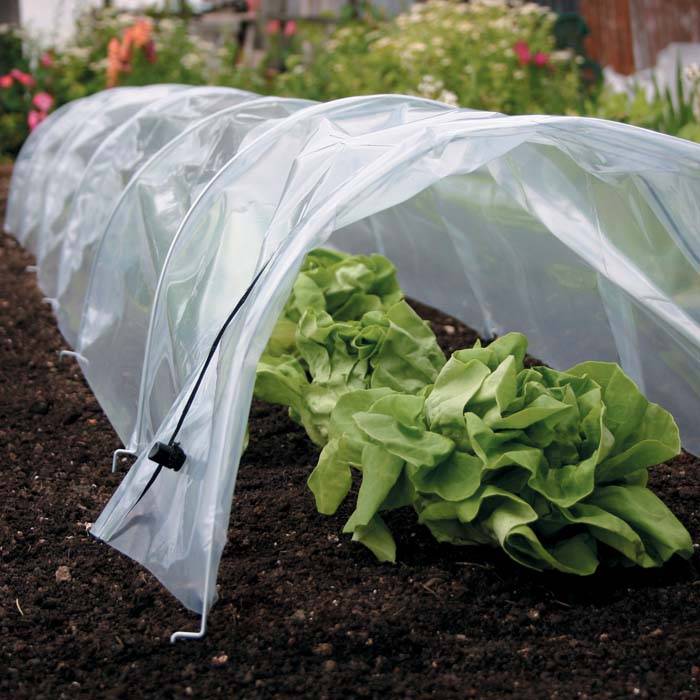
Simple Crop Tunnels can be made from a variety of materials to protect plants from the weather and pests - most common are polythene tunnels, fleece tunnels and mesh tunnels.
Cloches are also available in a range of sizes and styles from simple small cloches to protect individual plants to larger tunnel style cloches for protecting a small row of plants.
Wildlife Protection
From birds to slugs, squirrels to aphids, there is plenty of wildlife that will readily feast on your precious plants given the chance. Gardeners face a constant battle to outwit these troublesome foes, but some simple precautions can help you, rather than the pests eat the crop come harvest time!
Netting
There is a wide range of netting available that can protect from most types of wildlife and help keep those precious crops safe. Anti Bird Netting is perfect for protecting from birds and Insect Mesh is ideal to protect from smaller pests, there is even strong plastic netting to protect from larger animals such as deer - see our comprehensive Netting range.
Biological Control
There are a number of biological controls such as Nematodes which introduce organisms to the soil which are predatory to certain pests. Nemaslug is the most common and proves to be a very effective soution to slug problems. There are also predators such as Lacewing Larvae and ladybirds which can be introduced to increase the population of these species which readily feast on aphids and other minute pests - see our full range of pest control.
Humane Traps
There are a number of humane traps that cater for bigger garden pests which can cause a lot of damage to your vegetable patch. Using humane, live-catch traps is an efficient way to regain control of your plot and protect your plants - see our wide range of humane traps.






